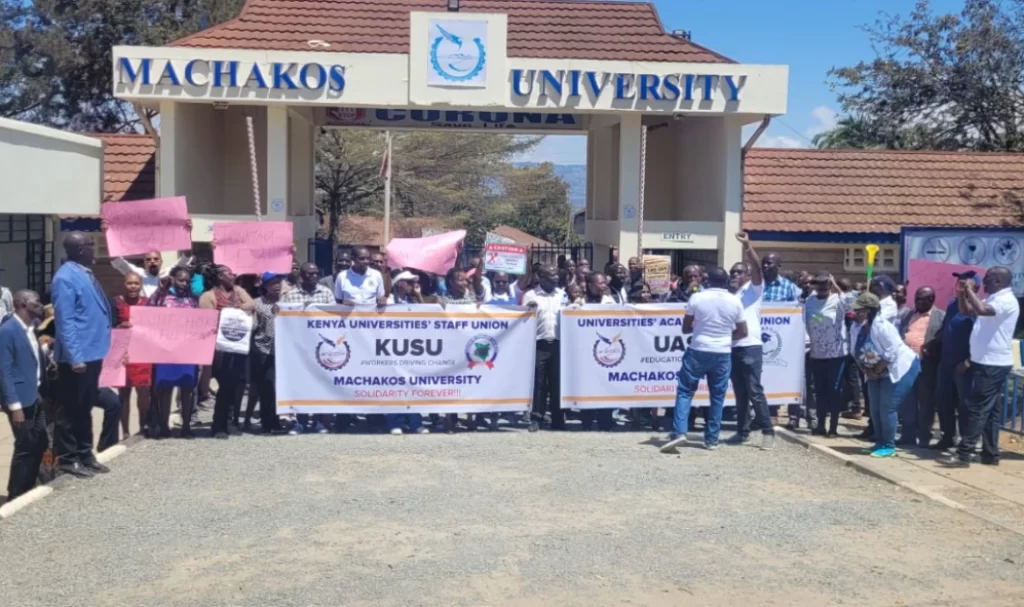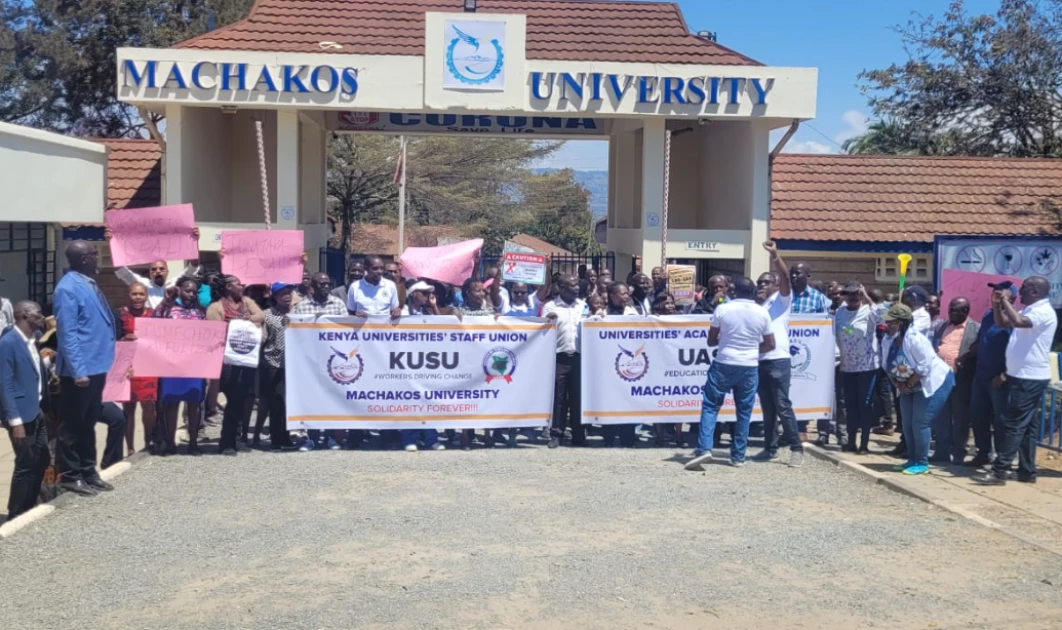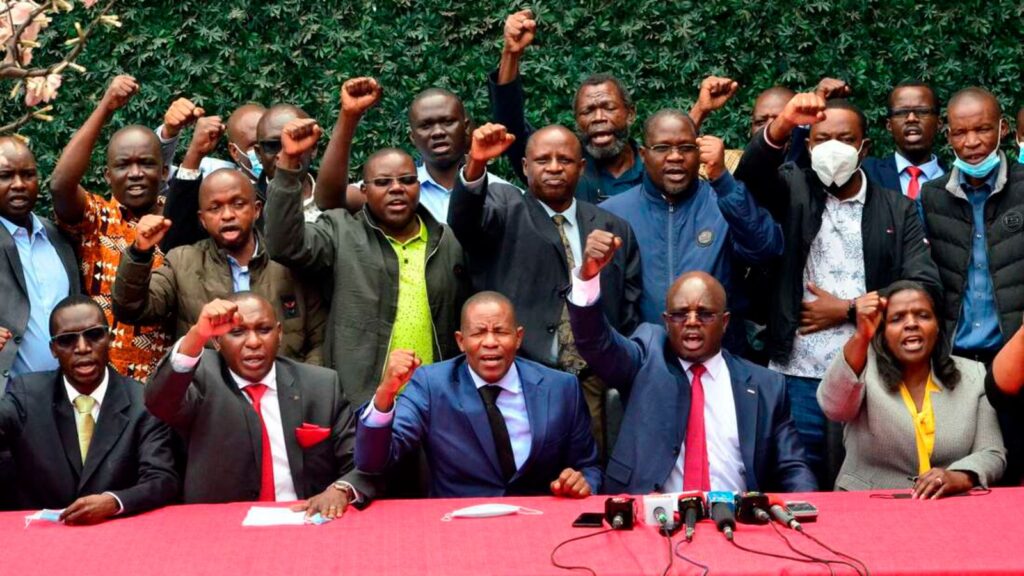
Faith Nyongesa
On Wednesday evening, a court order was issued that temporarily barred the University Academic Staff Union (UASU) and the Kenya Universities’ Staff Union (KUSU) from initiating or promoting any strikes or industrial actions.

This legal action aims to mitigate disruptions in public university operations and ensure academic continuity.
Despite the court’s intervention, leaders from both unions at the University of Nairobi expressed their determination to persist with the ongoing strike. They clarified that the court order only prevents them from announcing new strikes after September 18, 2024, suggesting that their current actions remain unaffected by the ruling.
September 11 is not affected; we are not calling for any industrial action which is new. We will abide by the court order. We will not issue another strike notice. We have already issued the strike notice and that court order is not retrogressive,” said UASU UoN Chapter Secretary General Maloba Wekesa.
It should be understood that the members behind me are in a legally protected strike.”
Union representatives articulated their dissatisfaction regarding several pressing issues, including delays in salary payments and inadequate remuneration. They highlighted ongoing concerns about unremitted statutory deductions, which have exacerbated the financial strain on university staff.

Additionally, the unions criticized the government’s failure to provide sufficient health coverage for academic staff. This lack of support has further fueled frustrations among the educators, who feel undervalued and unsupported in their professional roles.
The nationwide strike commenced on Wednesday, significantly disrupting academic activities across all public universities. Lectures, examinations, and other essential functions have been thrown into chaos as faculty members withdraw their services to protest their grievances.
Union leaders have emphasized that their primary motivation for this industrial action stems from the prolonged delays in finalizing the 2021-2025 Collective Bargaining Agreement (CBA) with the government. They argue that these negotiations have not adequately addressed their needs or improved their working conditions.
The unions believe that until their concerns are addressed, it is crucial to continue their strike as a means of pressuring the government to take action. They view this industrial action as a necessary step in advocating for their rights and ensuring fair treatment within the academic system.
As the situation unfolds, the unions remain steadfast in their commitment to fight for better working conditions, hoping that their collective efforts will eventually lead to a resolution that benefits both staff and students in the long term.






